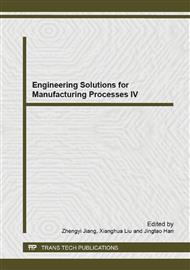p.483
p.488
p.493
p.497
p.501
p.507
p.513
p.518
p.527
Effect of Piston Motion on Combustion of CNG Free Piston Engine (FPE)
Abstract:
CNG is thought to be one of the most promising alternatives to traditional fuels. The multi-fuel ability is another characteristic of the FPE. The piston motion can be controlled to have beneficial effects on the engine performance. This article investigates the effect of piston motion on combustion of four-stroke CNG FPE using a multidimensional simulation model. It is found that the high piston acceleration and velocity at top dead center increases expansion ratio and fasting combustion, reduces the heat transfer losses and decreased NOx emissions formation. At the same time, the turbulent kinetic energy of the gas during the combustion process is added.
Info:
Periodical:
Pages:
501-506
Citation:
Online since:
February 2014
Authors:
Keywords:
Price:
Сopyright:
© 2014 Trans Tech Publications Ltd. All Rights Reserved
Share:
Citation:


